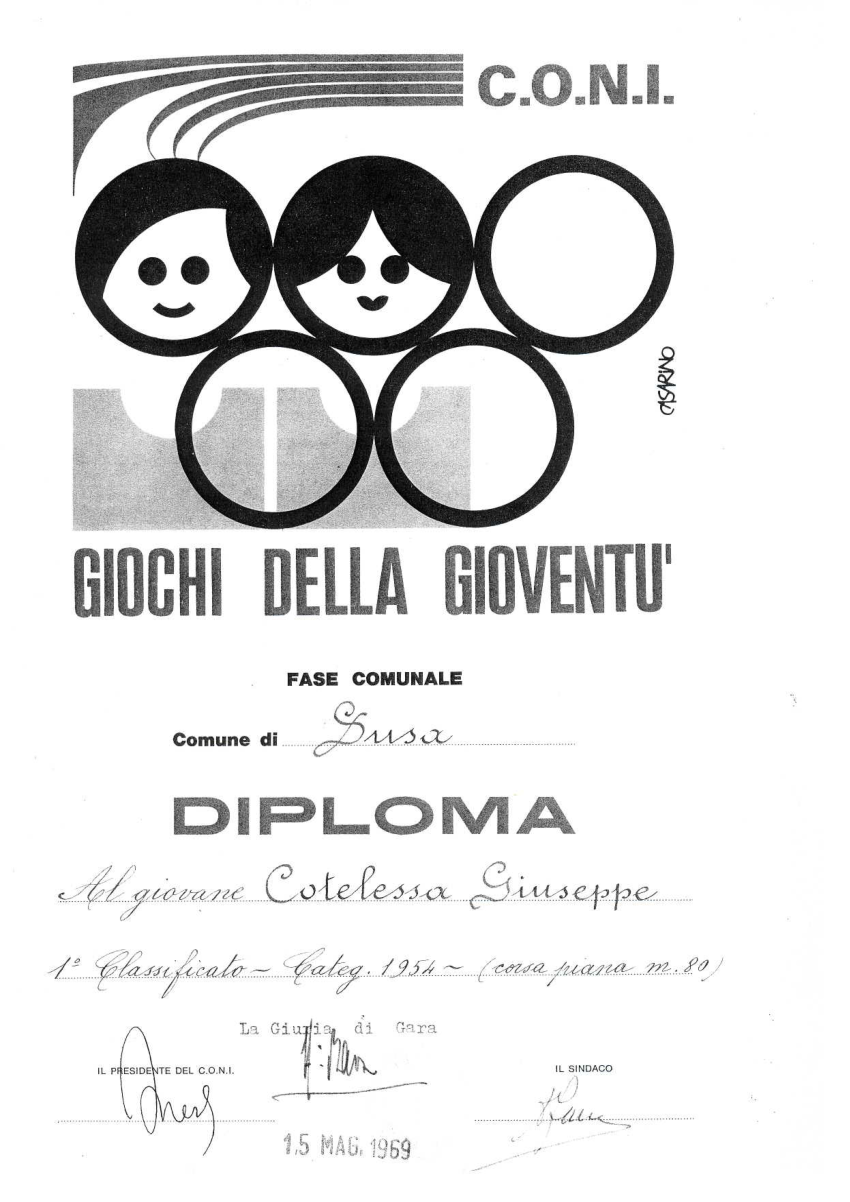- Uomo
- 70 anni
-
Ultima Visita
Singolo aggiornamento
Visualizza tutti gli aggiornamenti di azdgl0
-
Attestato di partecipazione del Dott. Giuseppe Cotellessa al Webinar n. #70 del 21-4-2023 avente per titolo “Letteratura e guerra: la Battaglia di Cassino 1944-2024“." organizzato da DiCultHer / Certificate of participation of Dr. Giuseppe Cotellessa in Webinar n. #70 of 21-4-2023 entitled "Literature and war: the Battle of Cassino 1944-2024“." organized by DiCultHer / #22/4/2023
Dott. Giuseppe Cotellessa
Attestato di partecipazione del Dott. Giuseppe Cotellessa al Webinar n. #70 del 21-4-2023 avente per titolo “Letteratura e guerra: la Battaglia di Cassino 1944-2024“." organizzato da DiCultHer.
Il ventitreesimo webinar #DiCultHer della serie 2022-23, in programmazione per il giorno 21 aprile 2023 ha per titolo “Letteratura e guerra: la Battaglia di Cassino 1944-2024“.
In preparazione alla ricorrenza dell’ottantesimo anniversario della battaglia di Cassino che si commemorerà nel 2024, i laboratori TECNAL e LIBANT dell’Università di Cassino e del Lazio Meridionale hanno avviato una riflessione sul soggetto della guerra nelle letterature europee, mettendo a confronto le testimonianze e le espressioni sui conflitti del Novecento con quelle dell’epoca medievale. All’argomento sarà dedicato il numero 7 di «Trame di Letteratura Comparata», rivista a cura del laboratorio TECNAL. Durante il webinar, guerra e letteratura saranno esplorate a partire da due luoghi divenuti simboli potentissimi degli esiti del secondo conflitto mondiale in Italia: Cassino e Montecassino, due centri strategici ma anche due emblemi della storia e della cultura italiana; una città divenuta martire ed un’abbazia che per secoli è stata uno dei maggiori propulsori della trasmissione del patrimonio culturale antico e medievale in Europa. La riflessione si allargherà al linguaggio della guerra così come si è manifestato in altri luoghi e in altri tempi: dalla poesia nella Spagna della guerra civile, al romanzo medievale; dal cinema di Quentin Tarantino, ai manoscritti cassinesi dell’alto medioevo. Gli interventi presenteranno diverse esperienze di ricerca e di didattica, realizzate anche attraverso le tecnologie informatiche.
ENGLISH
Certificate of participation of Dr. Giuseppe Cotellessa in Webinar n. #70 of 21-4-2023 entitled "Literature and war: the Battle of Cassino 1944-2024“." organized by DiCultHer
The twenty-third #DiCultHer webinar of the 2022-23 series, scheduled for April 21, 2023, is entitled "Literature and war: the Battle of Cassino 1944-2024".
In preparation for the eightieth anniversary of the battle of Cassino which will be commemorated in 2024, the TECNAL and LIBANT laboratories of the University of Cassino and Southern Lazio have launched a reflection on the subject of war in European literature, comparing the testimonies and the expressions on the conflicts of the twentieth century with those of the medieval era. Number 7 of «Trame di Letteratura Comparata», a magazine edited by the TECNAL laboratory, will be dedicated to the topic. During the webinar, war and literature will be explored starting from two places that have become very powerful symbols of the outcome of the Second World War in Italy: Cassino and Montecassino, two strategic centers but also two emblems of Italian history and culture; a city that became a martyr and an abbey that for centuries has been one of the major driving forces behind the transmission of ancient and medieval cultural heritage in Europe. The reflection will expand to the language of war as it manifested itself in other places and in other times: from poetry in Spain during the civil war to the medieval novel; from the cinema of Quentin Tarantino, to the Cassinese manuscripts of the early Middle Ages. The speeches will present various research and teaching experiences, also implemented through information technology.





















